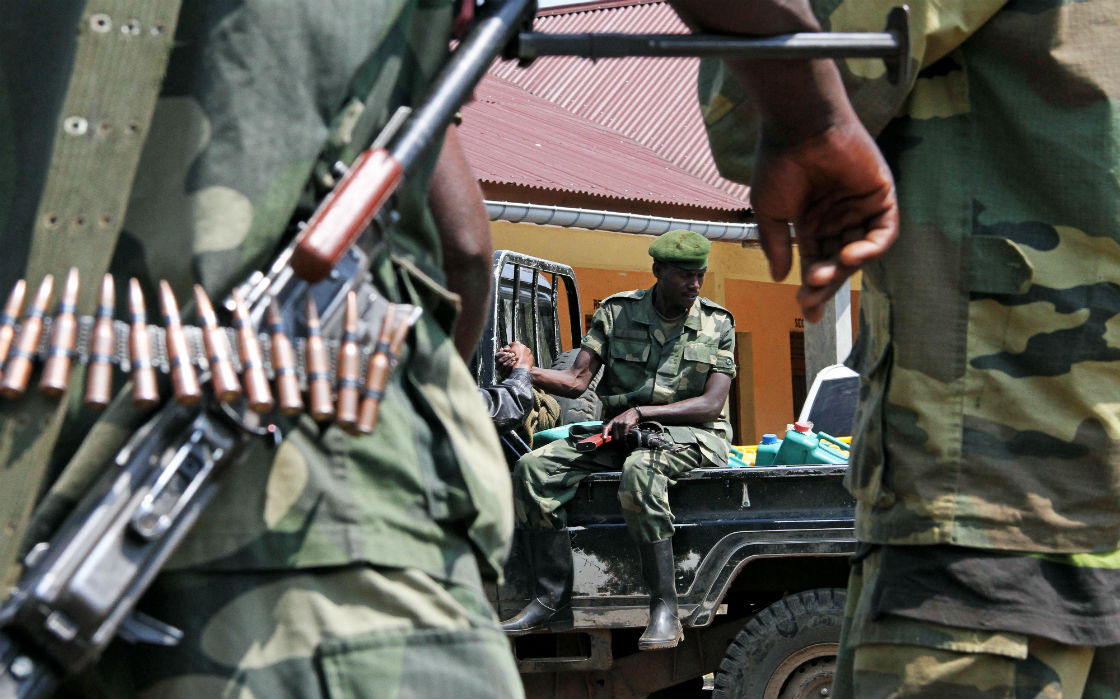KAMPALA, Uganda – United Nations Secretary-General Ban Ki-moon on Friday urged African leaders to implement a peace plan that the U.N. hopes will stabilize eastern Congo, a region long plagued by violence and which now is back on edge.

Ban told a news conference in Uganda that he expects regional leaders to try to find solutions as eastern Congo once again descends into another phase of hostilities sparked partly by the U.N’s deployment of a brigade of peacekeepers with a mandate to attack rebel groups. Ban said the deployment would become fully operational “in a matter of weeks,” although only about 100 members of a planned brigade of 3,000 have arrived there so far.
Along with World Bank President Jim Yong Kim, Ban met this week with some influential leaders in East and Central Africa in hopes of keeping alive a treaty signed in February by the U.N. and 11 African countries. That treaty, also known as the U.N.’s peace and security co-operation framework for Congo, has been overshadowed by renewed hostilities between the Congolese army and the M23, the most prominent rebel group currently operating in eastern Congo.
Peace talks under the banner of a regional bloc chaired by Ugandan President Yoweri Museveni have hit a dead end amid fears of a return to war. The rebels say they will defend themselves against the U.N. force, which to which African countries such as Tanzania and South Africa have pledged troops.
“We count on the continued leadership of President Museveni and other regional leaders,” the U.N. chief said.
M23, which is widely believed to be backed by Rwanda, is made up of hundreds of Congolese soldiers of mostly Rwandan descent who deserted the national army last year after accusing the government of failing to honour the terms of a deal signed in 2009.
Ban visited Goma, the provincial capital of eastern Congo, on Thursday after M23 commanders called a ceasefire so his trip could proceed. The U.N. chief said he was “humbled” by the tragic stories of ordinary Congolese people he met there.
“They are tired of war, tired of abuse, tired of impunity, tired of poverty,” he said.
The M23 rebels say they are interested in peace talks with the Congolese government, although they withdrew from the talks, which were being held in the Ugandan capital, Kampala. The rebels insist that the U.N.’s new brigade for Congo is an act of aggression. They say they will be forced to defend themselves against the U.N.’s peace enforcers.
Last November the rebels took Goma, a city of roughly 1 million that is of strategic importance, as U.N. peacekeepers stood by. The rebels retreated 10 days later after facing intense international pressure. That event is believed to have prompted the U.N. to deploy a force with a more robust mandate.
Ban said he believes the U.N.’s new collaboration with the World Bank will inject “a new spark of hope into a region desperate for good news.” The World Bank on Thursday pledged $1 billion in additional funds for health, education and others services in Congo and the wider region.



Comments